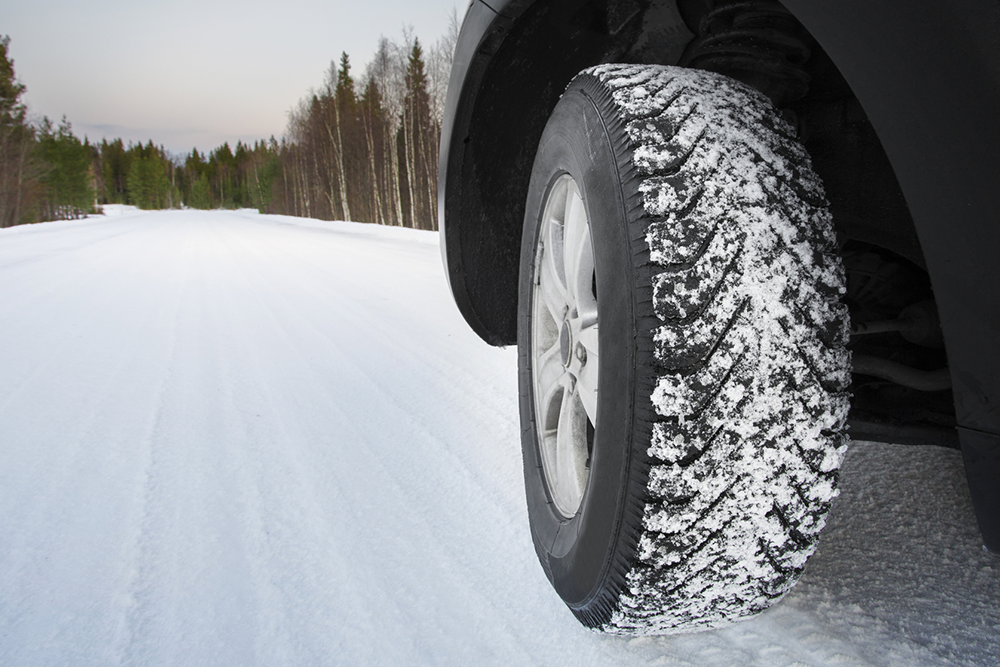Winter Tires A Wise Investment For Snowbound Drivers

Rain and snow can turn a familiar road into a hazardous journey. Are your tires ready?
Tread depth impacts your vehicles ability to maneuver and stop. Low amounts of tread can cause your vehicle to slide.
"As the temperature drops, proper tire maintenance is the key to a safety," said Terry Smouter of Hankook Tire America Corp.
Snowstorms and black ice make winter road conditions unpredictable.
In other words, a set of winter tires might be a wise investment if your commute contains an abundance of slick, icy roadways.
Rubber compounds used to make winter tires remains somewhat pliable in freezing temperatures, helping it better grip a wet, slick roadway.
While a healthy set of “all-season” tires can navigate slick roadways, winter tires simply provide superior handling and control in rain and snow.
Engineers design winter tires with deeper grooves in their treads than “all-season” tires. These deep channels prevent snow from accumulating and help expel moisture like slush and water.
While winter tires are adept at handling frigid, wet weather, they’re ill-suited for use when the mercury rises. A winter tire on a hot day will absorb more heat, give off a lot of vibration and its tread will wear quickly.
Smouter recommends drivers consider the weather when investing in tires and offers suggestions of questions to ask your service advisor when considering winter tires.
- What kind of winter tire best suits my vehicle and driving habits?
- What is the difference between studdable and performance winter tires?
- Should I buy separate wheels for my new set of winter tires?
- What do I do with my other set of tires? (Does your shop provide tire storage? Does this purchase include free mounting in the spring?)
- How will AWD/4WD affect my winter tire performance?
- Can I put winter tires on just the drive wheels of my vehicle or should I replace all 4 tires?
- What will be the noticeable differences in the way my vehicle drives once I put winter tires on?
- Get the most fuel economy out of tires. Tire tread design influences mileage per gallon. For passenger vehicles, fuel-efficient tires can boost a vehicle's fuel economy by 5% or more. These types of tires typically use harder rubber compounds. In contrast, winter tires and summer sports tires use soft rubber compounds which increase friction with road surfaces.
- Ask your service advisor to explain the differences between different types of winter tires. Look for tires with tread specifically designed to remain pliable in cold conditions. Winter tires utilize soft tread with deep grooves intended to improve grip on icy or snowy roads.
- Proper air pressure provides best performance. Whatever vehicle is being driven--from a work truck to an exotic sports car--proper tire pressure dramatically affects all tires. No matter how much you spend on your treads, they won’t perform as well or last as long if they aren’t properly inflated. Tires with the right amount of air pressure improve driving performance, last longer and offer better fuel efficiency.